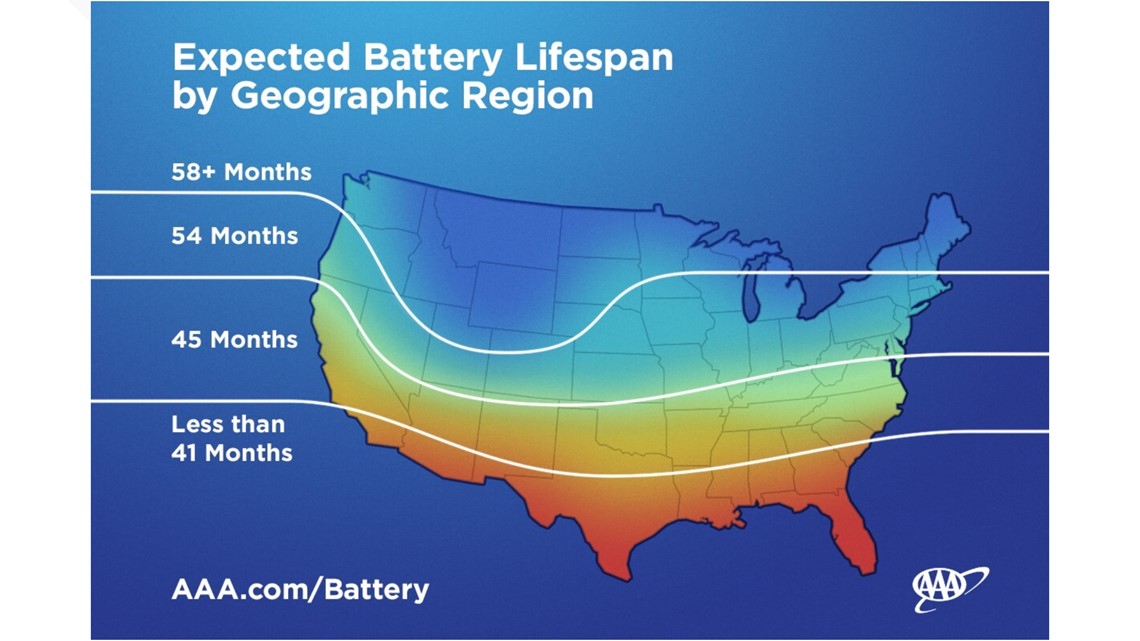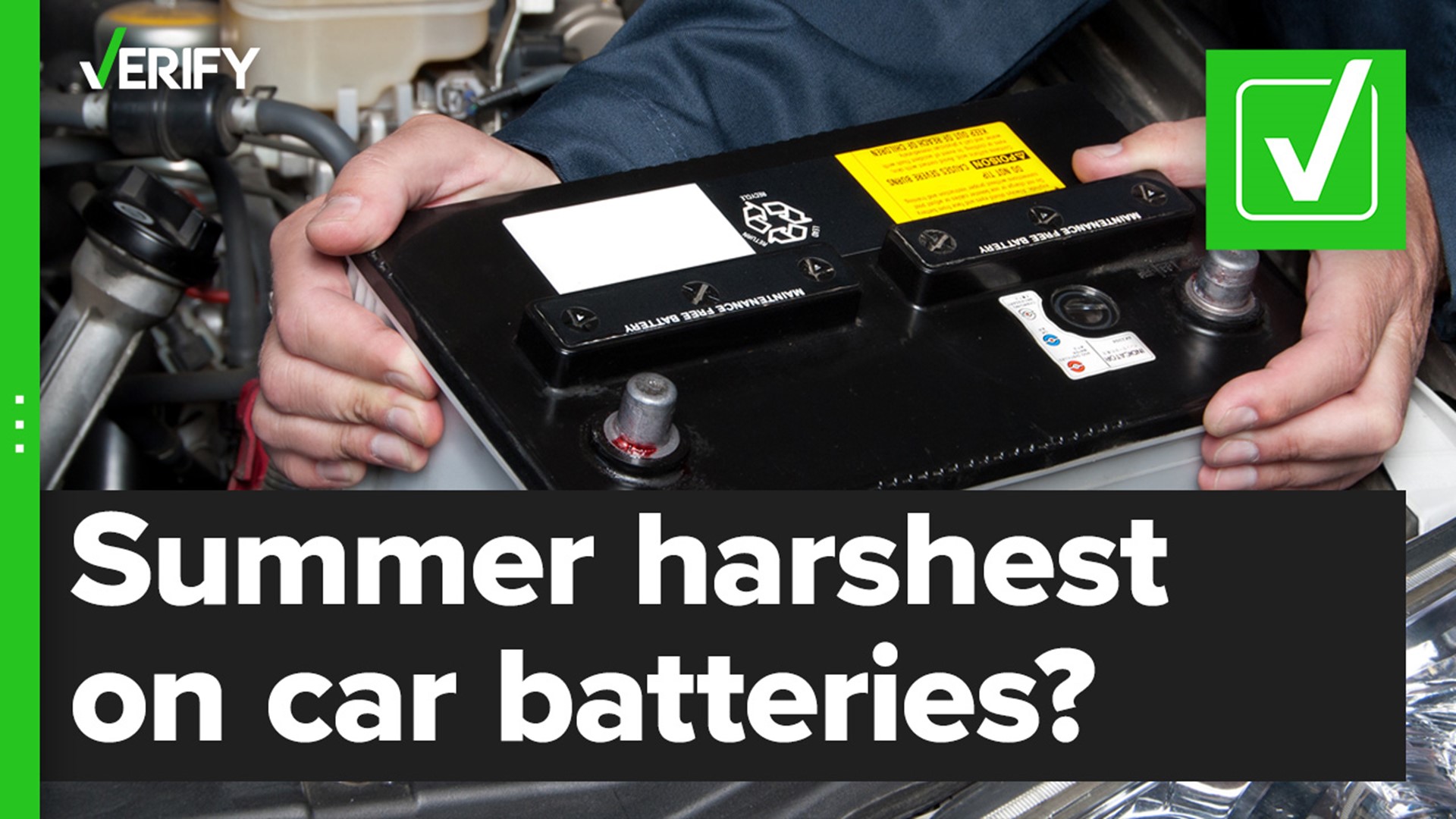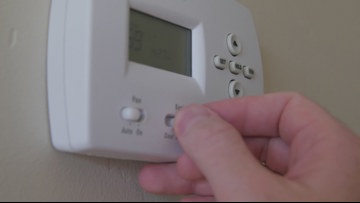Cold weather can wreak havoc on car batteries, according to AAA, but what about the heat?
VERIFY viewers Mia and Julia sent texts to our team asking if they should be more concerned about their car batteries failing in the summer due to hot temperatures than from cold weather in the winter.
THE QUESTION
Is hot weather worse for car batteries than cold weather?
THE SOURCES
- AAA
- David Bennett, manager of AAA Repair Systems
- Jiffy Lube of Southern California
- Firestone Complete Auto Care
THE ANSWER
Yes, heat is worse for car batteries than cold. Heat is the number one culprit behind car battery failure because high temperatures can evaporate your battery's vital fluids and weaken its charge.
WHAT WE FOUND
David Bennett, the manager of AAA Repair Systems, told VERIFY that it’s true that heat is worse for batteries than cold weather. Jiffy Lube of Southern California and Firestone Complete Auto Care agree.
“Life feels more demanding when it’s hot outside. All of a sudden you need a glass of water after a short walk around the block! Turns out, your car battery can also get ‘parched’ in the summer. High temperatures can evaporate your battery's vital liquids and weaken its charge,” Firestone wrote in a 2018 blog post.
Firestone and Jiffy Lube both say heat is particularly tough on batteries because it can cause battery fluid to evaporate, which can lessen its ability to hold a charge over time. Structural damage caused by battery fluid evaporation can also lead to acid leaks that can corrode the battery terminals and connections. If left untreated, the corrosion can cause ignition problems, according to Jiffy Lube.
“When the temperature drops and the engine oil gets thicker, battery damage initially caused by summer heat prohibits the engine from starting,” Jiffy Lube says.
Where you live can affect the lifespan of your car battery. Bennett and Jiffy Lube say a car battery typically lasts three to six years in normal weather conditions. A map published on AAA’s website estimates that car batteries in the warmest areas of the United States need to be replaced after about three and half years. Meanwhile, drivers located in colder regions of the country typically need to replace their car batteries after around the four to five-year mark.


Firestone and Jiffy Lube say there are several ways to determine whether your car battery may be failing:
- The engine cranks slower than normal when you start your car.
- The check engine light or battery light is illuminated on the dashboard.
- There is a grinding, clicking, or buzzing sound when you turn the ignition on.
- When you look at your battery, you see the fluid level is low.
- The battery case looks swollen or bloated.
- The battery posts (where the cables connect) are corroded.
- Your headlights or interior lights are dim but brighten when you rev the engine.
- Your battery is more than three years old.
To help prolong your battery’s lifespan, Firestone says it’s important to limit short car trips, double-check that you turned off interior and exterior lights when you leave the car, and keep your battery and battery posts clean. They also warn against using electronics, like the radio, when the engine is off. Also, be sure to park in the shade or in a garage to protect your car from direct sunlight.
Firestone says the best defense against a sluggish car battery is a new car battery. On its website, AAA also shares tips on what to do when your car needs a new battery.
“When your car needs a new battery, always purchase one from a high-volume seller with fresh stock. You do not want a battery that has already lost a good portion of its service life sitting on a shelf. Also, look for a battery with an extended full-replacement warranty. Quality batteries offer free replacement for three or more years if there is a problem within that period,” AAA says.












